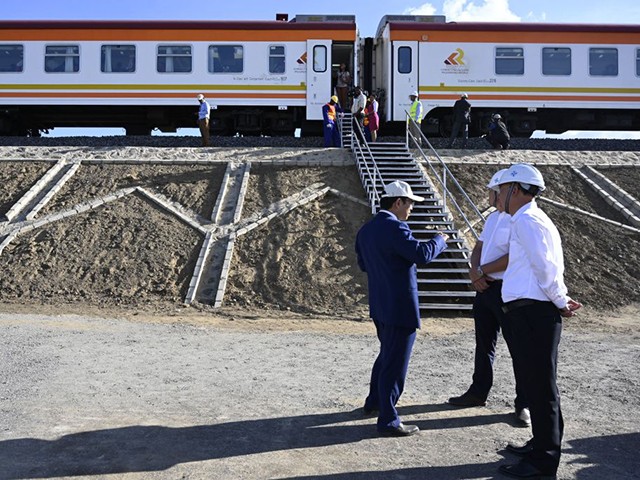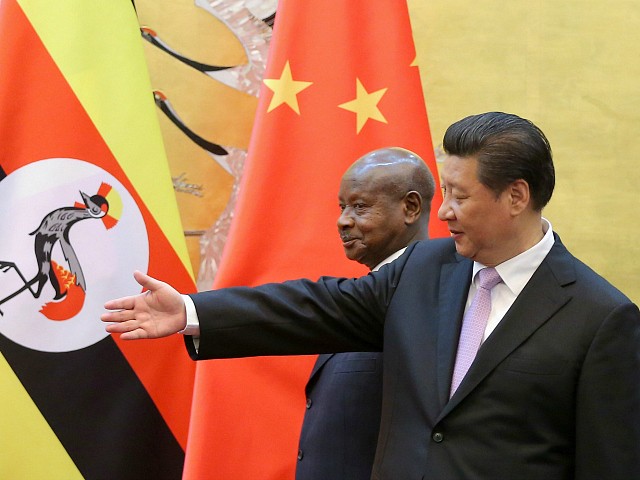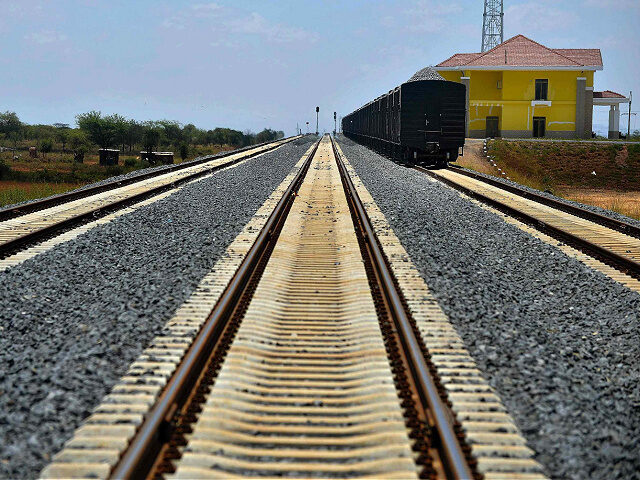The government of Uganda on Thursday terminated a Chinese company’s contract to build a major railroad to Kenya and is now considering a replacement deal with a Turkish firm.
Uganda booted the Chinese contractor because China was not willing to loan Uganda the money needed to complete the project.
Uganda signed a deal with the China Harbor and Engineering Company (CHEC) in 2015 to build the Standard Gauge Railway (SGR), a massive project under China’s Belt and Road Initiative (BRI) that would span Kenya and Uganda. The SGR is among the largest infrastructure projects contemplated by either country in the post-colonial era.
The Kenya side of the project has been very controversial, dogged by questions about cost overruns, poor treatment of Kenyan workers by Chinese corporations, and if the railroad can ever generate enough income to pay off the huge Chinese loans that financed it.
A fresh storm of controversy broke out in Kenya in November when long-secret contracts were finally exposed to the public in a bid to dispel rumors that Kenya staked its precious port of Mombasa as collateral for more loans from Chinese banks. The documents seem to have allayed fears that the port is at risk, but they raised many more questions about financing terms that lopsidedly favored China, and they made it clear the Kenyan government has not been honest with its citizens about the SGR project.

Contractors from China Communication Construction Company (CCCC) stand next to the Standard Gauge Railway (SGR) train at Mai Mahiu, on October 16, 2019. (Photo by SIMON MAINA/AFP via Getty Images)
A senior Ugandan official told Reuters on Friday that China has not come through with the loans Uganda needs to complete its SGR railway.
“One of the obligations under the contract with the Chinese was that they were supposed to help Uganda source financing which has really not come true,” the Ugandan official said.
“So now the discussions are with Yapi Merkezi which has shown interest,” the official continued. “There’s no contract with them yet, but there’s an MoU [Memorandum of Understanding] and things are moving fast.”
Yapi Merkezi is a Turkish construction firm that has experience building standard-gauge railways in Africa. The company signed a $1.9 billion contract in December 2021 to build the third phase of a major railway in Tanzania. The railway was designed to link up with Kenya’s SGR, so the specifications for the rails are identical. According to Reuters’ source, Uganda turned to Yapi Merkezi because it was impressed with the work it completed in Tanzania.
Ugandan project coordinator Perez Wamburu told Bloomberg News on Thursday the Chinese contract was canceled because “things weren’t working out.”

Ugandan President Yoweri Kaguta Museveni and Chinese President Xi Jinping attend a signing ceremony in the Great Hall of the People on March 31, 2015, in Beijing, China. (Photo by Feng Li – Pool/Getty Images)
Uganda spent eight years trying to secure funding from China for the railroad, but Chinese bankers were apparently hesitant to provide funding because India’s side of the rail link to Uganda might not reach any seaports in the near future. Connecting the railroad to a seaport is the only way to make it economically viable.
Wamburu also said China grew more nervous about pumping huge sums into overseas projects after the Wuhan coronavirus pandemic.
“We read between the lines when China’s Ambassador to Uganda said that after the Covid-19 pandemic, China has become more cautious about financing big infrastructure projects in Africa. We all know that Covid didn’t leave economies of the world the same,” he told TRT World on Friday.
According to Wamburu, the Chinese Export-Import Bank has not even responded to Uganda’s requests for financing in almost a year.
If Uganda goes with Yapi Merkezi instead, the Turkish company would build Uganda’s SGR along a different route that connects it to the promising Yapi Merkezi rail project in Tanzania instead of Kenya. Wamburu said Uganda would finance this alternative route with “syndicated loans from lenders such as export credit agencies” instead of China’s mega-banks.

COMMENTS
Please let us know if you're having issues with commenting.